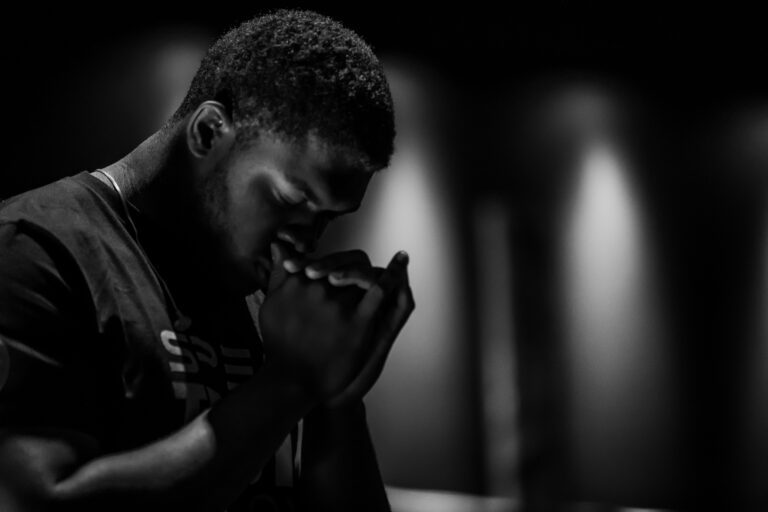8 Suggestions for Dating When You Have Bipolar Disorder (or other mental illness)
*Photo by Thanos Pal on Unsplash
Even if you live with bipolar disorder or other mental illness, you can still have fulfilling relationships in your life. Whether you want to join the dating scene, make a friend, or simply connect with a human being, you can do it!
There are different factors and considerations to take into account when you live with bipolar disorder, but do not let that keep you from living your life.
The Dating Scene
You may be thinking about dating or possibly finding a long-term relationship. If this is you, let me give you a few suggestions that I have found helpful throughout my life living with bipolar disorder.
These ideas are based on my personal experience. I hope that you can use one of the following suggestions in your own life.
1. Be True to Yourself
This pretty much goes without saying, but let it be a reminder:
Be true to yourself.
When it comes to relationships, no two are alike. The same is true with bipolar: no two cases are the same.
Now, let us take it a step further and see how this information can help us along our journey.
A common question is, “When should I tell the person I am with that I live with bipolar disorder?”
There is no easy “answer A” or “answer B” response. It depends on your relationship, and since no two relationships are the same, be true to yourself.
Make sure you feel comfortable about the timeline. Take into account the other person and your expectations.
In the past, I have been upfront in disclosing my illness to the other person. I’ve also waited until they got to know me first, and sometimes I never even mentioned it.
Do what you feel is right.
2. Solidify Your Expectations
If you can define your expectations, you will create boundaries to support these expectations.
Answering these questions will help you figure out your expectations when you start dating:
- Are you looking for a committed relationship? Or something more casual?
- Do you have time throughout the week to hang out? The weekend?
- How do feel about talking on the phone? Texting? Facetime?
- Are there any kids in the picture? If you have a child, when are you comfortable introducing them to your new fling?
Answering these questions and others will help you define your expectations of any potential relationships.
I’m not saying to get all anxious with all the what-ifs?, but I am a firm believer in preparing yourself. That way, if you do end up getting into a situation, you will already have created your own expectations and boundaries.
Solidifying your expectations is a way to build a concrete foundation for getting out into the dating world.
3. Don’t Compromise Your Treatment Plan
Many people do not fully understand the importance of a treatment plan. If you live with bipolar disorder, you know all too well the significance of a treatment plan.
A treatment plan outlines the various methodologies to manage your bipolar disorder. You may have not written down your plan, but it is in your head.
Anything you do to manage your bipolar disorder is part of your treatment plan. Examples of components in your plan include:
- Daily (and PRN) medications
- Seeing a therapist
- Self-care strategies such as yoga, massage, meditation
- Sleep hygiene
- Exercise
- Healthy eating choices
- Reducing stress
Make sure you keep up with your treatment plan.
It is okay to be flexible. Just make sure you do not compromise your own personal health. For instance, if you get into bed each night by 9 pm, I would suggest not staying out until 3 am at a dance club.
4. Maintain Your Routine
I understand the importance of flexibility.
I also understand the importance of stability.
My routine helps me to manage my bipolar disorder. I have a specific time I wake up in the morning when I take my meds, and when I go to bed. It is also a daily non-negotiable for me to lift weights.
I know that being flexible with my routine will impact my health, and thus, my functionality.
Is it worth it to compromise your routine and possibly jeopardize your health?
5. Be open about your needs
This goes back to the concept of expectations.
When you have solidified your expectations, share them with the individual you are dating. It’s important that you feel comfortable sharing this information, but you want to make sure you are both on the same page.
It may take you a bit out of your comfort zone, but it’s important to start a relationship on a strong foundation.
6. Make sure you are ready to join the dating scene
It’s okay if you don’t feel ready to join the dating scene. Don’t feel rushed. Even if you have outside sources making side comments, do not listen.
Dating does elevate stress levels and stress is one of the biggest triggers for bipolar disorder. That’s a big reason why you want to be ready before entering the dating scene.
That being said, don’t put off moving forward due to fear if you feel ready to take action.
Stability is a good indication of whether you are ready or not.
7. Discuss the symptomology of your bipolar disorder
When you decide to disclose your bipolar disorder, discuss the symptoms you primarily exhibit before/during/after an episode.
There are different types of bipolar disorder, but in the end, bipolar disorder is bipolar disorder. Each person presents in different ways.
For example, when I get full-blown manic, I stay up for days, hypersexuality takes over, my mind races, and I ultimately become psychotic. It’s scary after I read that last sentence back, but it’s important that those who could potentially get close to me know the whole story.
8. When in doubt, walk it out
To be honest, I’m not sure where I heard this statement or if I made it up myself. Either way, it has helped me tremendously over the years.
Everyone has disagreements with their relationships. Some get more heated and can result in arguments and loud shouting matches.
Whether you have bipolar disorder or not, it’s good practice to take a break if things get too overwhelming or heated. There is no harm in saying you need to take a few minutes and go for a walk to calm down.
Taking yourself out of the situation is a good way to diffuse it. Then, you can regroup and come back when things are more settled.
This suggestion is not solely directed at arguments.
If your anxiety gets to an unmanageable level, take a walk.
If a situation gets unbearable, take a walk.
I’m not talking about running away from things, but to get your mind in a state where you are better able to handle the situation.
I hope you get the idea.
Last Thoughts
If you want to date, get out there and do it.
The dating scene is a bit intimidating, but you can manage it with the right tools and preparation.
I hope the suggestions I mentioned are insightful and give you some good ideas.
Do not sell yourself short. You are stronger and more capable than you can imagine.







